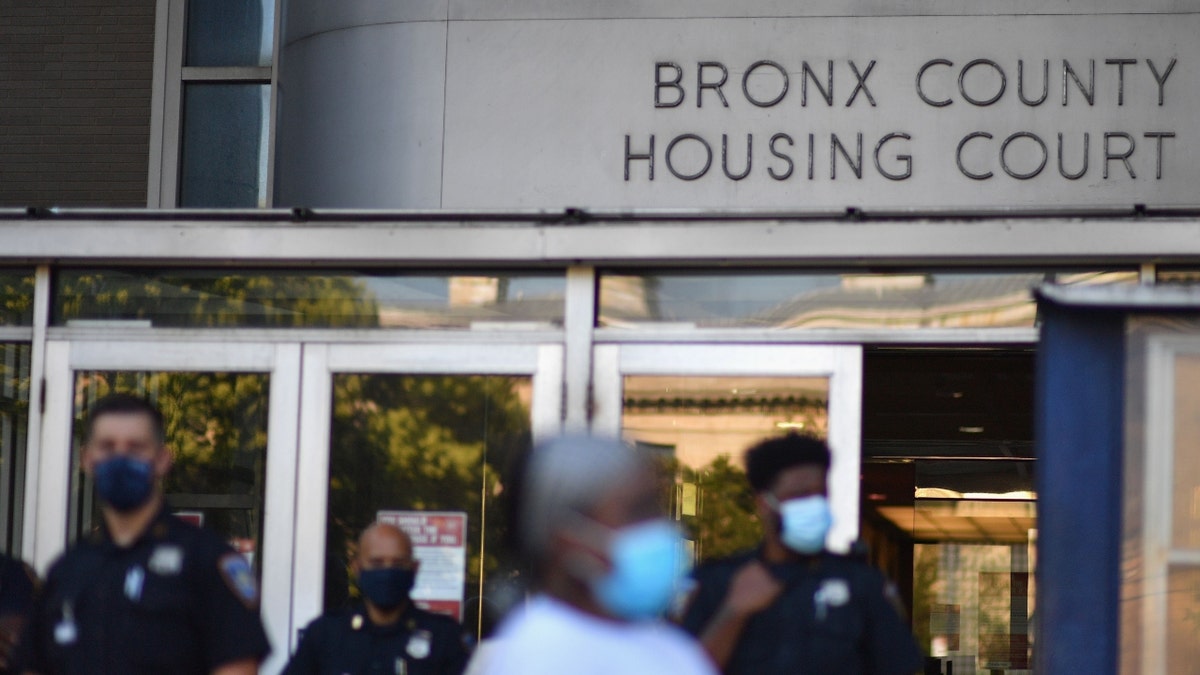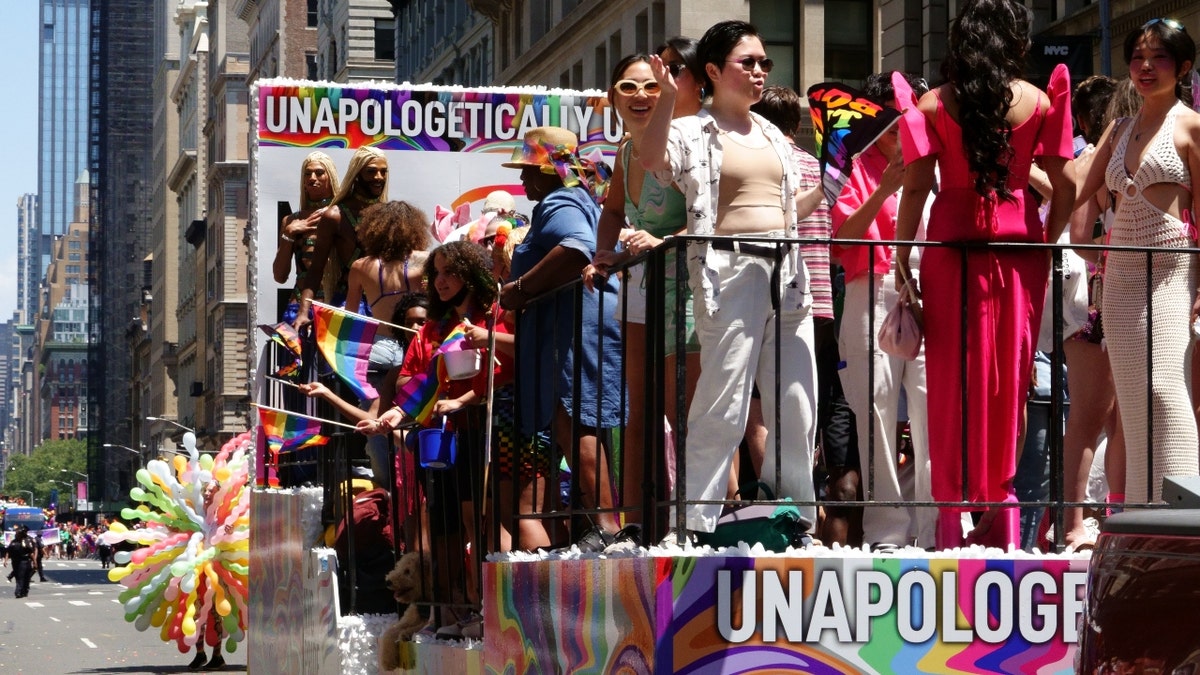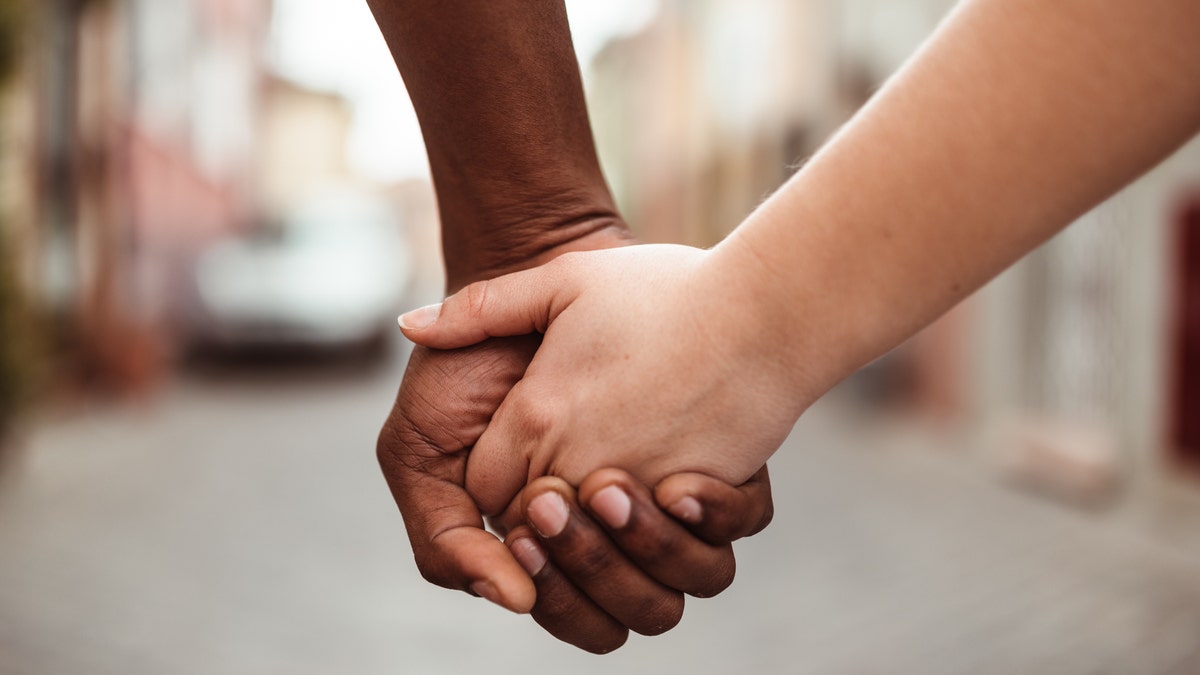Fox News Flash top headlines for October 8
Fox News Flash top headlines are here. Check out what's clicking on Foxnews.com.
An opinion from New York City's eviction court has come down on the side of polyamorous unions.
In the case of West 49th St., LLC v. O’Neill, New York Civil Court Judge Karen May Bacdayan reportedly concluded that polyamorous relationships are entitled to the same sort of legal protection given to two-person relationships.
West 49th St., LLC v. O’Neill involved three individuals: Scott Anderson and Markyus O’Neill, who lived together in a New York City apartment, and Anderson's husband Robert Romano, who resided elsewhere.
Anderson held the lease, and following his death, the building's owner argued that O'Neill had no right to renew the lease because he was a "non-traditional family member."
FEDERAL JUDGE TEMPORARILY BLOCKS PARTS OF NEW YORK GUN LAW
The attorney for the property owner said that O'Neill's affidavit, in which he claims himself as a non-traditional family member, is a "fairytale."
According to LGBTQ Nation, the case returns to court after further investigation of the three individuals’ relationship.

Community members protest against evictions and in support of the movement to "cancel rent" outside the Bronx housing court on Aug. 10, 2020, in the Bronx borough of New York City. (ANGELA WEISS/AFP via Getty Images)
In her decision, Judge Bacdayan highlighted the importance of a previous case and asserted that the existence of a triad – no matter how they got along – should not automatically dismiss O'Neill's claim to non-eviction protections.
"Before gay marriage was legalized in any state, Braschi v. Stahl Assocs. Co., 74 NY2d 201 (1989) was decided. The New York State Court of Appeals became the first American appellate court to recognize that a non-traditional, two-person, same-sex, committed family-like relationship is entitled to legal recognition, and that the nontraditional family member is entitled to receive noneviction protections. The Braschi court interpreted the Rent Control Law in effect at a time when there was no legal recognition of same-sex marriage, and broadly construed the law to effectuate its remedial purposes. Braschi is widely regarded as a catalyst for the legal challenges and changes that ensued," she pointed out. "By the end of 2014, gay marriage was legal in 35 states through either legislation or state court action. Obergefell, et al. v. Hodges et al., 576 U.S. 644, 135 S. Ct. 2584 (2015), the seminal U.S. Supreme Court decision that established same-sex marriage as a constitutional right, was also heralded as groundbreaking. However, Braschi and its progeny and Obergefell limit their holdings to two-person relationships. The instant case presents the distinct and complex issue of significant multi-person relationships."

New York City's Gay Pride Parade (Photo by: Joan Slatkin/UCG/Universal Images Group via Getty Images)
SUPREME COURT CONSERVATIVE MAJORITY POISED TO UPHOLD ALABAMA CONGRESSIONAL MAP
In the case at hand, Bacdayan notes how changes since 1989 play a role, including changes to the definition of "family."
She notes the law has rapidly proceeded in recognizing that it is possible for a child to have more than two legal parents.
"Why then, except for the very real possibility of implicit majoritarian animus, is the limitation of two persons inserted into the definition of a family-like relationship for the purposes of receiving the same protections from eviction accorded to legally formalized or blood relationships?" asked Bacdayan.

(iStock)
"Why does a person have to be committed to one other person in only certain prescribed ways in order to enjoy stability in housing after the departure of a loved one?" she continued. "Do all nontraditional relationships have to comprise or include only two primary persons?"
Bacdayan pondered whether a person who would not meet the requirements for succession to a rent-stabilized apartment after Braschi was decided could now be evicted when they may qualify – as was concluded in Braschi – under a more inclusive interpretation of a family.
CLICK HERE TO GET THE FOX NEWS APP
The judge notes that the "problem" with cases like Braschi and the landmark Obergefell v. Hogdes – which held that the Fourteenth Amendment guarantees the right for same-sex couples to marry and requires all states to recognize and issue marriage licenses for those couples – is that they "recognize only two-person relations."
"Those decisions, however, open the door for consideration of other relational constructs; and, perhaps, the time has arrived," Bacdayan said, citing a passage from Justice John Roberts' Obergefell dissent.
"If not having the opportunity to marry serves to disrespect and subordinate gay and lesbian couples, why wouldn't the same imposition of this disability … serve to disrespect and subordinate people who find fulfillment in polyamorous relationships?" Roberts wrote.











































